Chester Zoo: £10m Covid loss halts 'vital' conservation work
- Published
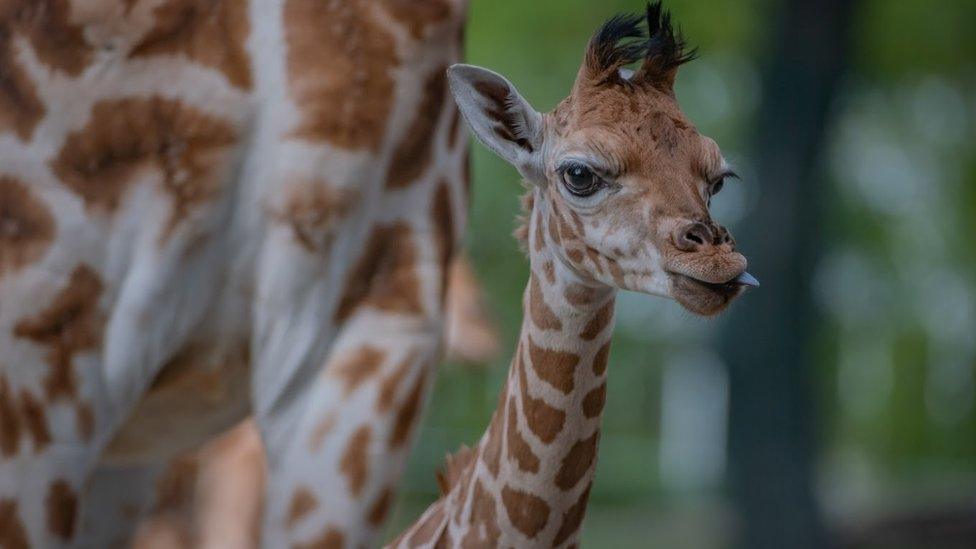
Chester Zoo has deferred support for the conservation of endangered giraffes in Uganda
A zoo's "vital" conservation work in Africa and Asia has been halted because of Covid-19's impact on its finances.
Chester Zoo said since March 2020, coronavirus restrictions had led to a £10m loss, which meant many projects had been "put on hold".
A spokesman said projects supporting Nigeria's chimpanzees, Javan warty pigs and Uganda's rhinos had been affected.
The government said support was available through the Zoo Animals Fund and other schemes.
A Department for Environment, Food and Rural Affairs (Defra) spokesman added that the £100m emergency fund, external was there "to ensure that those facing severe financial difficulties can continue to provide the best possible care for their animals".
The Cheshire zoo's chief operating officer Jamie Christon said larger sites had been unable to access the financial support and only 10% of the promised relief had so far been distributed.
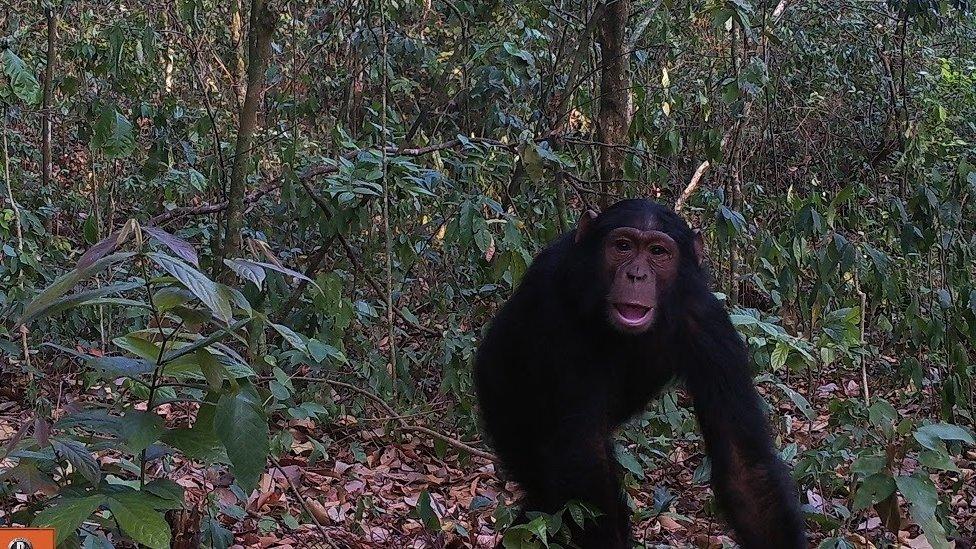
The zoo has reduced financial support for work to protect chimpanzees in Nigeria
The zoo, which runs 80 conservation projects in 30 countries, is one of the largest in the country and is home to more than 35,000 animals from more than 500 of the world's rarest species.
It costs more than £1.6m a month to run and usually receives 97% of its income from visitors.
During the lockdowns, a fundraising appeal has seen it raise about £3m, after more than 130,000 donors from 90 countries sent money.
The spokesman said the "huge losses" it had incurred had also seen it halt projects supporting other endangered species on the two continents, including schemes helping hornbills in Malaysia, songbirds in Indonesia, Uganda's giraffes and the east Javan banteng, though he added that "happily", some "vital work" was ongoing.
Mr Christon said he hoped that the zoo would be able to reopen before Easter so it could raise much-needed revenue.
"We're saying to the government 'we're a safe, secure site'; we've already proven that last summer," he said.
A Defra spokesman said it had "expanded the eligibility criteria from the previous Zoo Support Fund, increasing the amount of reserves that applicants must have from six weeks to 12 weeks".

Why not follow BBC North West on Facebook, external, Twitter, external and Instagram, external? You can also send story ideas to northwest.newsonline@bbc.co.uk, external
Related topics
- Published18 December 2020

- Published29 September 2020
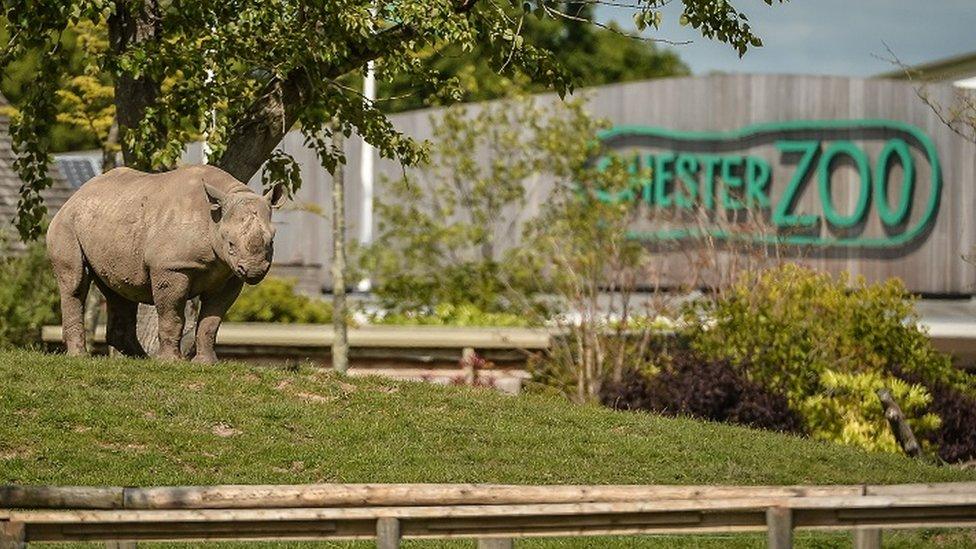
- Published15 June 2020
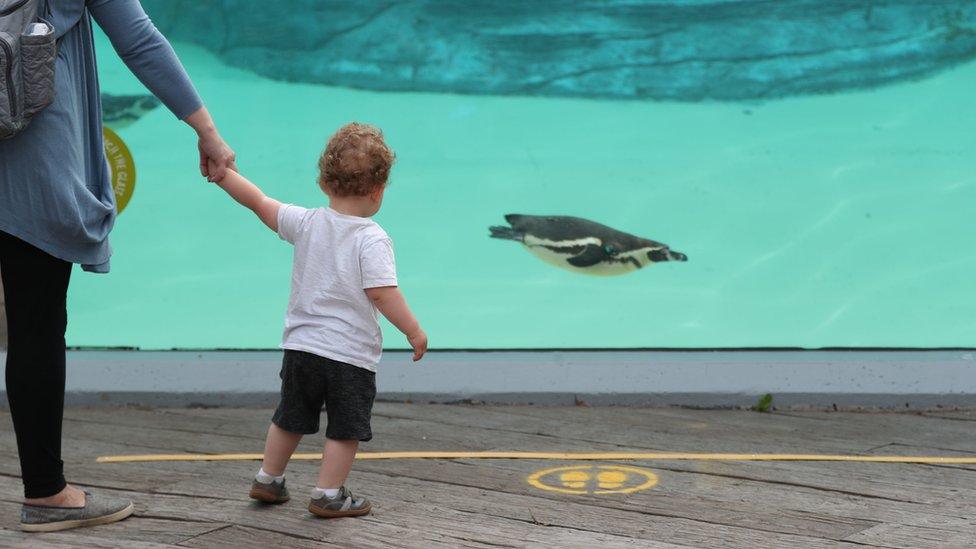
- Published10 June 2020
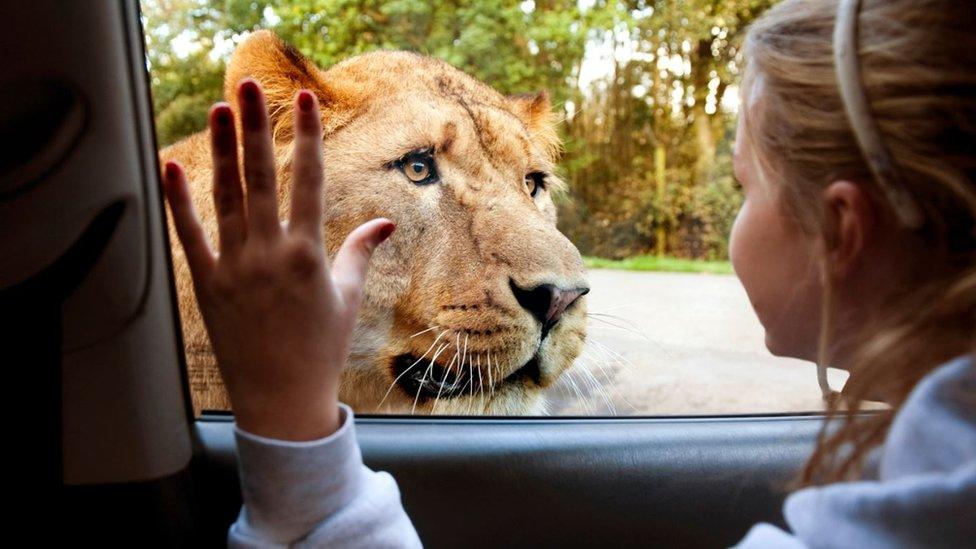
- Published8 June 2020
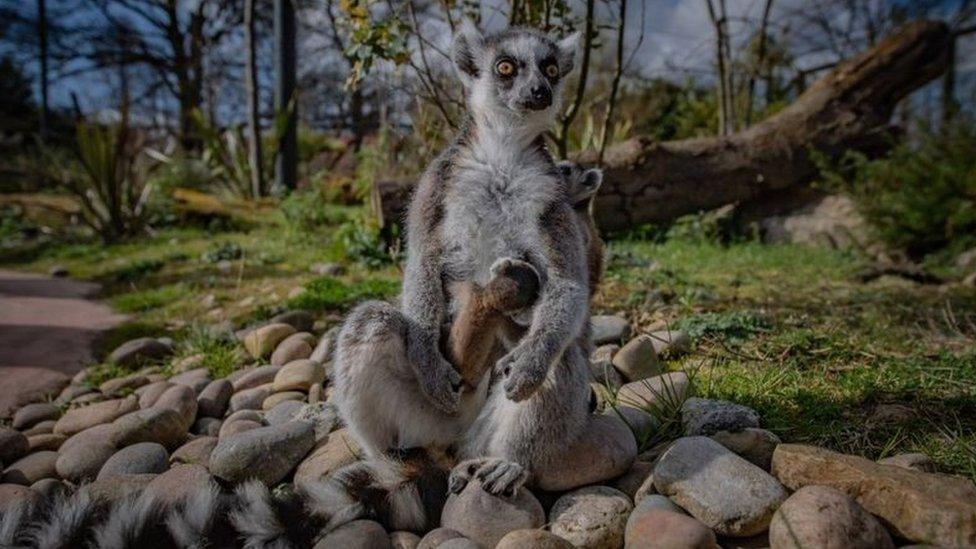
- Published5 June 2020
